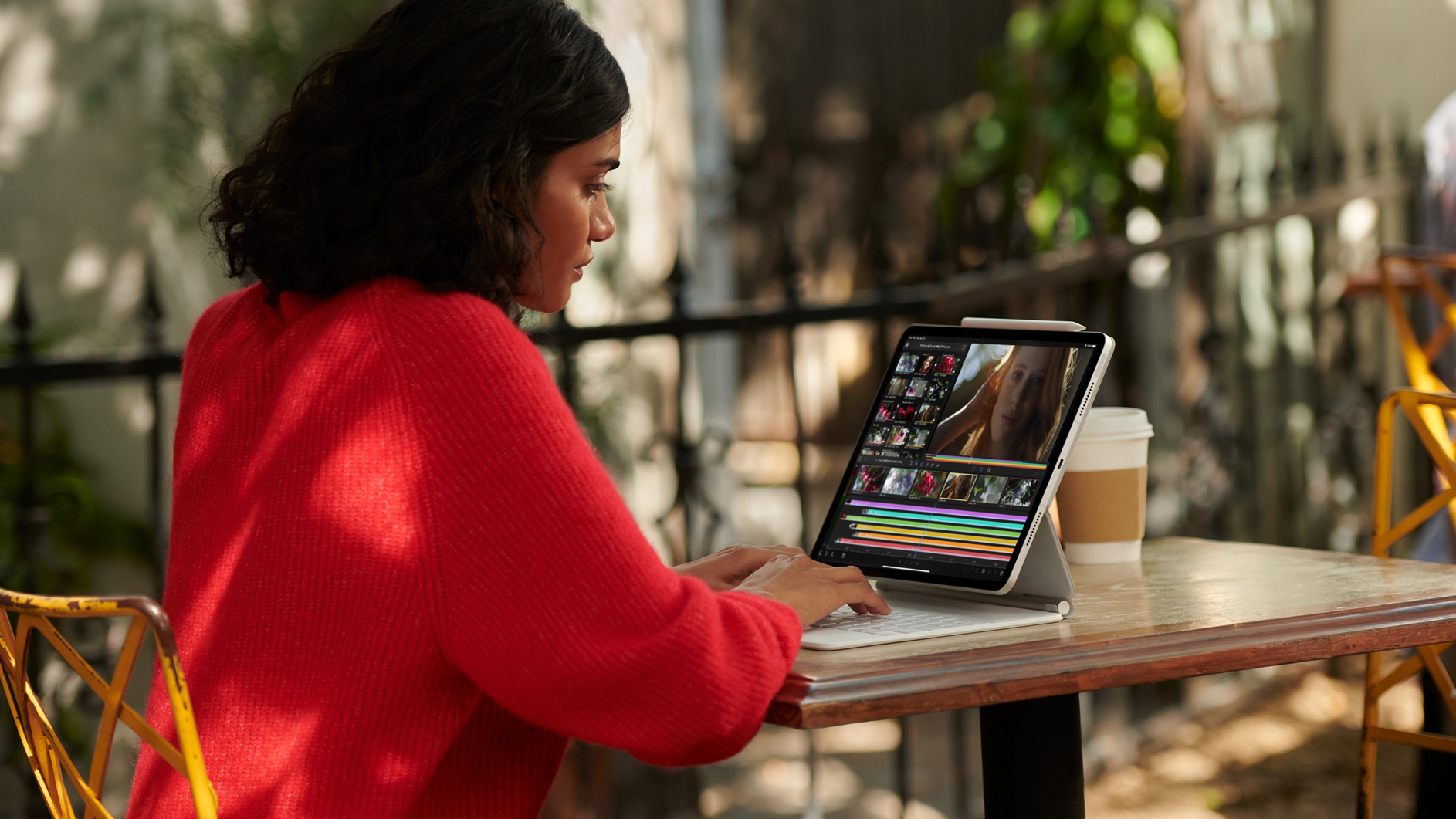Can students use an iPad instead of a laptop? Here's what you need to know
The iPad can be an incredibly powerful computer for students, but it has some limitations too – here are the pros and cons


As we enter back-to-school season, lots of people are looking at what computer to get for school or uni work. While the best student laptops will dominate the conversation, it's also worth noting that there are plenty of people heading further or higher education who've been using iPads for most of their lives, and will be wondering whether an iPad would be a smarter buy for students actually.
It's a good question – the iPad is flexible in some ways that even touchscreen laptops can't match, after all. But the opposite is true also, and there ways that traditional laptops can be more open, especially for students who might change their interests while they study.
So before you head over to our list of the best iPad deals, let's take a look at the pros and cons of using the iPad as your main student computer.
iPads for students: pros
One of the biggest advantages of the iPad is that its touchscreen is ideal for note-taking. All of the current iPad models include Apple Pencil support, though other simpler styluses are also available. This means you can use them instead of a notepad in lectures to make notes however you like – mind-map, scrawl them in shapes that make sense to you, write on top of PDF hand-outs… whatever.
And the latest version of iPadOS includes tools to turn any handwriting into regular copyable text, so can scrawl notes quickly, then copy them into a regular word doc for storing and referring to later. You can also copy your doodles to include in those notes. It's really powerful in this regard.
But the iPad also works with keyboards, so you have the flexibility to have just the tablet for taking notes, then popping it into a keyboard case for writing longer coursework. The best of both!
An iPad setup is smaller and lighter than pretty much any laptop, and you can leave sections of it at home if you prefer – ditch the keyboard and you halve the weight, but still have a full-power computer with you.
Get all the latest news, reviews, deals and buying guides on gorgeous tech, home and active products from the T3 experts
iPads are incredibly fast and extremely reliable – there's a low risk of weird failures (I've been using them for a decade, and have never had one) and even if you do have issues, Apple is the best computer company for repairs, since you can visit its own stores. Built-in iCloud backup is a real boon too – it makes it much harder to lose important work when disaster strikes.
They're easier to read things on, since you can kick back and use them like an e-reader – great for when you're deep in research.
They're really capable when it comes to core software too – the web browser should be able to access any major web-based tools, and you've apps to just about anything, from video editing to just writing documents.
The iPad also has an advantage that so much of its software is really cheap, so if you want to get into music making or something new while at uni, really great software costs very little. The same type of software might cost a lot more on a laptop.
And there's a lot of fun you can have with the iPad too – watching video, playing games, DJing, drawing, making video calls… it's good at everything.
iPads for students: cons
If you want the full iPad experience, it can add up in a way that means it's that much cheaper than a good laptop. For example, the iPad Air (2020), Apple Pencil 2 and Logitech Folio Touch Keyboard Case with Trackpad will cost £837/$887 – and that's with the most basic 64GB of storage. The 256GB version costs £150 more, and you should probably get that one if this is supposed to be your main laptop replacement.
That price puts it into MacBook Air (M1, 2020) territory. In fact, the MacBook can usually be found slightly cheaper than that. You don't get a touchscreen, but you do get a larger screen than the iPad Air.
The screen size is potentially an issue as well – the iPad 10.2-inch (2020) and iPad Air are both under 11 inches, and while this is a great size for a tablet overall, it's a bit pokey for writing lengthy essays or a dissertation. You won't have any issues with it 98% of the time, but when it gets to you, it'll really get to you.
It can also make working on some complex documents types more frustrating – large spreadsheets will be a struggle, for example, since not much will fit on the screen at the same time. Not a problem for every student, but a pain for some, no question.
Similarly, text editing on the iPad is much slower than a laptop if you don't have a mouse or trackpad to use with your iPad. The good news is that any Bluetooth mouse or trackpad will work, but it's something you really need to buy, in my view.
iPads don't support USB printing, so if your course requires you to print stuff out, you'll need to invest in a wireless printer with iPad support – you won't be able to just hook into someone else's as needed.
And finally, there's the software limitations we hinted at earlier. The iPad has the ability to run versions of just about any kind of software, but if part of your course is learning to use particular pro software, that will probably be a desktop version.
Video editing, photo editing, music creation, programming, CAD, publishing… there are iPad tools that can do all of these things, but none of them is the industry standard, and if your goal is to be proficient in the software the employers expect you to use, they won't be enough.
iPads for students: conclusion
In my view, the iPad definitely can be a laptop replacement for students, especially if the computer use in your course is more focused on research and writing than any creative pro software. And, like I said, the iPad makes it much easier to get into new creative hobbies than a regular computer, so is the ideal companion for the experimental time of further/higher education in that regard.
It's just that the iPad has some limits that might stop you reaching your work potential if you don't also have a laptop or desktop available, and you really might end up ruing that.
So it will depend on your course, but in my opinion the safest route is to go with a laptop. However, if you can stretch to an iPad as well, I really do think they're an excellent thing for students to have around, for the note-taking and creative potential I mentioned.
One of the best student laptops and the cheapest iPad 10.2 or iPad mini (2019) and Apple Pencil would be a hell of a combination – powerful research and creative tools on the light tablet, and the flexibility of any software you might need on the laptop.

Matt is T3's former AV and Smart Home Editor (UK), master of all things audiovisual, overseeing our TV, speakers and headphones coverage. He also covered smart home products and large appliances, as well as our toys and games articles. He's can explain both what Dolby Vision IQ is and why the Lego you're building doesn't fit together the way the instructions say, so is truly invaluable. Matt has worked for tech publications for over 10 years, in print and online, including running T3's print magazine and launching its most recent redesign. He's also contributed to a huge number of tech and gaming titles over the years. Say hello if you see him roaming the halls at CES, IFA or Toy Fair. Matt now works for our sister title TechRadar.